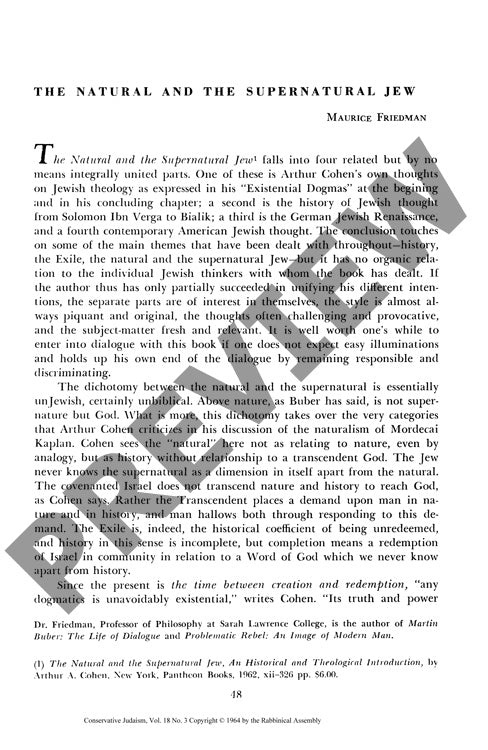The Natural and the Supernatural Jew
Couldn't load pickup availability
Arthur Cohen's ambitious attempt to systematize Jewish theological thought in "The Natural and the Supernatural Jew" (1962) falters on its central premise - a supposed dichotomy between natural and supernatural Judaism that proves fundamentally un-Jewish and unbiblical. Through literary criticism and philosophical analysis, this evaluation traces Cohen's examination of Jewish theology across four periods, from Solomon Ibn Verga to contemporary American Jewish thought. While Cohen offers valuable insights on key Jewish thinkers like Hermann Cohen, Leo Baeck, Franz Rosenzweig, and Martin Buber, he fails to achieve organic unity between his theoretical framework and historical analysis. Jewish thought traditionally recognizes God's transcendent demands within nature and history rather than separate supernatural dimensions - a crucial distinction Cohen overlooks. His work particularly misinterprets Buber's philosophy and inadequately addresses Abraham Joshua Heschel's theological contributions. Yet Cohen's penetrating critique of American Judaism's mediocrity and assimilationist tendencies remains significant. Though his terminology and systematic approach prove problematic, Cohen's call for renewed Jewish religious thought in America represents an important contribution to contemporary Jewish theological discourse.

More Information
-
Physical Description
-
Publication Information
Published 1964
ISBN
-
Publication Credits
Maurice Friedman

